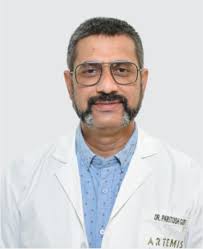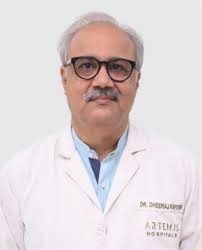General Surgery
Abscess Drainage – Multiple
Abscess Drainage – Multiple
Abscess Drainage – Multiple involves surgical removal of pus from several infected sites to relieve pain and prevent infection spread, crucial in managing complex or widespread abscesses.
Multiple abscess drainage surgery India
Multiple abscess drainage surgery is a type of operation performed to drain two or more abscesss (bacterial infections) that have developed in different parts of the body. Abscesss can occur in the skin, soft tissue, inner organs, or around the anus, and multiple abscesss may either be drained at one session or one after another depending on their size, location, and severity. The general objective of surgery is to drain pus, reduce infection, relieve pain, and promote healing.
Indications
Surgery is typically recommended when abscesses are:
- Large or multiple
- Not responding to antibiotics alone
- Producing systemic symptoms (fever, sepsis)
- Peering near important structures where spread of infection can happen
Common sites:
- Skin and subcutaneous tissue (boils, carbuncles)
- Perianal area (perianal abscesses, fistulas)
- Internal organs (liver, kidney, intra-abdominal abscesses)
Abscess incision and drainage procedure India
Incision and drainage (I&D) is a standard surgical intervention to treat an abscess, which is a localized infection of pus caused by bacteria. It is done by making an incision to drain pus, decompress, decrease infection, and heal. It is most commonly done for skin, subcutaneous tissue, or perianal abscesses.
Preoperative Preparation
- Clinical assessment: Establish abscess by physical exam and imaging if deep
- Laboratory studies: CBC, pus culture (if indicated)
- Consent: Describe procedure, complications, and post-op care
- Anaesthesia: Local, regional, or general, based on size and location
Surgical Procedure
Step-by-Step:
- Anaesthesia: Local infiltration over the abscess for small superficial abscesses; general anaesthesia can be required for large or multiple abscesses.
- Skin preparation: Prepare the skin with antiseptic solution.
- Incision: Make a small incision over the most fluctuant area of the abscess.
- Drainage: Pus is aspirated gently. The cavity is probed with a sterile instrument to drain all loculations.
- Irrigation: Abscess cavity is irrigated with sterile saline to extract any residual pus.
- Drain placement (if necessary): A sterile wick or drain can be inserted in deeper abscesses to avoid re-accumulation.
- Closure: Generally left open to heal secondarily; occasionally partial closure is performed for cosmetic or functional purposes.
Postoperative Care
- Wound care: Dressings changed as needed, keep area dry and clean
- Antibiotics: Depending on severity and culture results
- Pain management: Pain medication as needed
- Monitoring: Monitor for signs of recurrence or infection spread
- Follow-up: Typically within 3–7 days, or sooner if symptoms increase
Best hospitals for abscess drainage India
- Artemis Hospital, Gurgaon
- Medanta-The Medicity, Gurgaon
- Fortis Memorial Research Institute, Gurgaon
- Max Hospital, Saket
Percutaneous abscess drainage India
Percutaneous drainage of an abscess is a minimally invasive technique to drain fluid collections or abscesses deep within the body, such as in the liver, kidney, pancreas, pelvis, or intra-abdominal space. Unlike open surgical drainage, PAD is performed through the skin with the aid of imaging (ultrasound, CT, or fluoroscopy) without the need for large incisions. It's used for patients who are high-risk candidates for open surgery.
Indications
PAD is used for:
- Intra-abdominal abscesses following surgery or infection
- Liver or kidney abscesses
- Pancreatic pseudocysts or infected collections
- Unsuitable patients for open surgery
- Well-defined, unilocular, and accessible percutaneously - abscesses
Contraindications:
- Uncorrected coagulopathy
- Abscess not accessible via safe percutaneous method
- Multiloculated abscesses unsuitable for drainage
Preoperative Preparation
- Imaging: Ultrasound or CT to localize the abscess accurately
- Lab tests: CBC, coagulation profile, renal and liver function tests
- Antibiotics: Often started pre-procedure
- Consent: Educate regarding risks like bleeding, infection, or organ damage
Procedure Steps
- Positioning: Patient positioned to facilitate safe access to abscess site.
- Anaesthesia: Local anaesthetic with sedation; general anaesthesia if required.
- Imaging Guidance: Ultrasound or CT used for needle placement.
- Needle Puncture: A percutaneously advancing needle is inserted into the cavity of the abscess.
- Placement of Guidewire: A guidewire is passed through the needle into the abscess.
- Placing Catheter: Over the guidewire, a pigtail catheter is positioned.
- Drainage: Fluid or pus is aspirated; cavity may be irrigated with saline.
- Securing Catheter: Catheter is stabilized against the skin; drainage bag held in place by a strap.
- Monitoring: Catheter may be left for days to weeks depending on the output of fluid.
Post-Procedure Care
- Closely observe drain output and infection signs
- Antibiotics prolonged according to culture reports
- Follow-up imaging as a routine to confirm resolution of the abscess
- Removal of catheter once drainage is negligible and imaging confirms resolution
Benefits
- Less invasive: no large surgery incision
- May be done under local anaesthesia
- Reduced hospital stay and faster recovery
- Less complications compared to open surgery
Factors Affecting Drainage of multiple abscesses cost India
Cost of draining multiple abscesses in India is fairly diverse based on numerous factors like nature of abscess, treatment approach employed, treating center, and patient-specific requirements. Following is a high-resolution granular classification:
Type & Location of Abscess:
- Cost of draining surface skin abscess is less than draining deep or internal abscesses.
- Following individual sites like perianal area or breast may be costlier because of specialist treatment.
Number of Abscesses:
- Multiple abscesses require more complicated treatment, which is time-consuming and expensive.
Treatment Method:
- Incision & Drainage (I&D): Generally performed under local anaesthesia; tends to be less expensive.
- Percutaneous Drainage: Utilizes image-guided techniques; is more expensive due to high-tech equipment and specialist skills used.
Healthcare Facility:
- Private clinics and hospitals may be more expensive than government hospitals.
- Metropolitan city hospitals such as Delhi, Mumbai, and Bangalore charge more.
Surgeon's Expertise:
- Experienced surgeons or specialists can charge higher fees depending on their reputation and specialization.
Preoperative & Postoperative Care:
- Diagnostic tests (e.g., ultrasound, blood tests), medications, and follow-up appointments are the extra fees that can be incurred.
Deep abscess drainage specialist India
- Dr. Paritosh S Gupta
- Dr. Adarsh Chaudhary
- Dr. Ajay Kumar Kriplani
- Dr. Amit Javed
- Dr. Yogesh Gautam
Conclusion
Drainage of multiple abscesses is an emergent surgical procedure meant to drain pus, suppress infection, and encourage healing. It is possible to have the procedure done by incision and drainage (I&D) for superficial abscesses or percutaneous image-guided drainage for deep-seated abscesses. Overall, India provides quality abscess drainage procedures at comparatively reasonable prices, especially when well-planned with regard to facility selection, method, and insurance coverage. Prompt intervention guarantees quicker recovery, fewer complications, and improved outcomes.
Multiple abscess drainage surgery in India with GetWellGo
GetWellGo is regarded as a leading supplier of healthcare services. We help our foreign clients choose the best treatment locations that suit their needs both financially and medically.
We offer:
- Complete transparency
- Fair costs.
- 24 hour availability.
- Medical E-visas
- Online consultation from recognized Indian experts.
- Assistance in selecting India's top hospitals for Multiple abscess drainage surgery.
- Expert GI surgeon with a strong track record of success
- Assistance during and after the course of treatment.
- Language Support
- Travel and Accommodation Services
- Case manager assigned to every patient to provide seamless support in and out of the hospital like appointment booking
- Local SIM Cards
- Currency Exchange
- Arranging Patient’s local food
FAQ
What are the types of drainage procedures?
- Incision & Drainage (I&D): For superficial or readily accessible abscesses.
- Percutaneous Image-Guided Drainage: Minimally invasive, under ultrasound or CT guidance for deep abscesses.
How long does the procedure take?
- Superficial abscess drainage: 15–30 minutes per abscess.
- Deep or multiple abscesses: 30 minutes to 2 hours, depending on complexity.
What is the recovery time?
- Superficial abscess: 1–2 weeks
- Multiple or deep abscesses: 2–6 weeks
- Follow-up and normal wound care is necessary for complete recovery.
Is the surgery painful?
- Local anaesthesia or sedation is administered, so pain is negligible during the procedure.
- Postoperative pain is managed with painkillers.
Can international patients have this surgery in India?
- Yes. India has state-of-the-art surgical facilities, highly qualified surgeons, and reasonable cost packages. Several hospitals also provide visa assistance, accommodation, and follow-up facilities.
TREATMENT-RELATED QUESTIONS
GetWellGo will provide you end-to-end guidance and assistance and that will include finding relevant and the best doctors for you in India.
A relationship manager from GetWellGo will be assigned to you who will prepare your case, share with multiple doctors and hospitals and get back to you with a treatment plan, cost of treatment and other useful information. The relationship manager will take care of all details related to your visit and successful return & recovery.
Yes, if you wish GetWellGo can assist you in getting your appointments fixed with multiple doctors and hospitals, which will assist you in getting the second opinion and will help you in cost comparison as well.
Yes, our professional medical team will help you in getting the estimated cost for the treatment. The cost as you may be aware depends on the medical condition, the choice of treatment, the type of room opted for etc. All your medical history and essential treatment details would be analyzed by the team of experts in the hospitals. They will also provide you with the various types of rooms/accommodation packages available and you have to make the selection. Charges are likely to vary by the type of room you take.
You have to check with your health insurance provider for the details.
The price that you get from GetWellGo is directly from the hospital, it is also discounted and lowest possible in most cases. We help you in getting the best price possible.
No, we don't charge patients for any service or convenience fee. All healthcare services GetWellGo provide are free of cost.
Top Doctors for General Surgery
Top Hospitals for General Surgery
Contact Us Now!
Fill the form below to get in touch with our experts.







